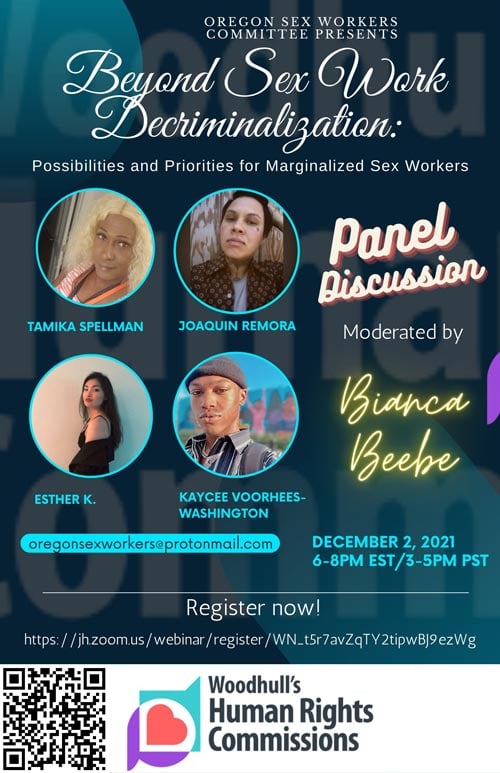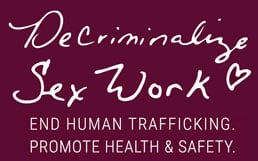Former Sex Worker Prevails in Discrimination Lawsuit
July 9, 2022
Nicole Gilliland was awarded $1.7 million in damages after a jury found that she had in fact been discriminated against by Southwestern Oregon Community College (SWOCC) because of her past work in pornographic films. Gililland filed suit against SWOCC, in Coos Bay, Oregon, for both breach of contract and for violating Title IX, which prohibits schools that receive federal funding from discriminating on the basis of sex. Though the judge in her case concurred that Gilliland had a Title IX claim based on some of the comments made to her by professors, the jury rejected it; however, they did find that SWOCC had breached its tuition contract with Gilliland by violating its discrimination and unlawful harassment policies, among others.
In December of 2021, U.S. Magistrate Judge Mustafa T. Kasubhai ruled in Gilliland’s favor, marking the first time that Title IX has been invoked by a student to fight discrimination based on a history of doing sex work. Judge Kasuubhai found that the evidence Gilliland presented to prove discrimination was directly connected to her work history. Judge Kasubhai also found that the actions of the professors constituted sex discrimination as they made comments that advanced a stereotype of the kind of woman “appropriate for the nursing profession” and deemed Gilliland unfit.
It began with a single professor. While Gilliland was recovering from illness, Professor Melissa Sperry gave Gilliland additional work that had not been assigned to other students. Three days later when Gilliland turned it in, Sperry refused to grade it. Later, Sperry lowered Gilliland’s grades on tests she had taken late as a result of her illness. When Gilliland questioned this, Sperry replied: “unclassy women shouldn’t be nurses, Nicole.” Sperry then changed passing grades on assignments Gilliland had previously turned in, causing her to fail, and alleged that Gilliland had plagiarized them. At a hearing on the plagiarism accusation, the head of the nursing program testified that Gilliland was an angry person and unsafe around her patients. Hospital staff immediately disputed those claims.
Gilliland was confused at first. She had been on the Dean’s List before beginning to fail her classes inexplicably and had received rave reviews from the nurse overseeing her practicum placement. Suddenly, it all clicked for her. Gilliland realized that her grades were low not because she was underperforming in school, but because of her history as an adult-film performer. It became clear to Gilliland that she wasn’t going to pass the semester.
Other students refused to speak to her on campus because they feared similar treatment from professors.
In an interview with Vice, a classmate of Gilliland’s said that she was not surprised that she faced discrimination as a result of her history in porn. “The instructors decided that she was not right for the program and singled her out — the first step was the bogus assignment, then they landed on plagiarism. It was a total shit show. SWOCC’s nursing school has a reputation for having bullies.” Other students at SWOCC reported similar patterns of discrimination based on their accents or because of their age. But they were always able to graduate. However, in Gilliland’s case, the stigma around being a sex worker was too great for SWOCC.
Gilliland’s lawsuit is based on a claim not only of individual discrimination, but also that SWOCC engaged in a pattern of behavior that targets and excludes female students. While it is difficult to determine the exact demographics of people doing sex work, statistics tend to report that a majority are women. Sixty-six percent of prostitution arrests in the United States in 2014 were of women. Derek Demeri, a 2020 graduate of Rutgers Law School, authored an article in Rutgers University Law Review outlining how and why discrimination against sex workers violates Title IX. Now, the federal court’s ruling confirms it. “It’s not just about Title IX — getting a court to recognize that discrimination against sex workers is sex discrimination could bring a sweeping movement across the country,” Demeri said of Gililland’s lawsuit in a 2020 Vice interview.
The road to victory has not been easy for Gilliland. Treatment by her professors and the school administration drove her to a suicide attempt in 2019, which caused her to lose custody of her children. Her younger daughter was sent to live with the very family members who had told the Coos County community about her history with sex work. She was then fired from her food service job because of her “legal troubles” and kicked out of her apartment for “stirring up trouble” with the lawsuit. “At first I thought, ‘how in the hell do you think you’ll get away with this?’” Gililland told Vice. “But now I see that they really could. We have one whore taking on all of these noble people.”
After submitting for a psychological evaluation and acquiring 12 letters of character support from friends and acquaintances, Gilliland regained custody of her children. After bouncing between a homeless shelter and a shed, she was put in touch with Alex Andrews, long-time sex worker rights advocate who started a GoFundMe for the family and found them a new place to live.
Despite all the setbacks, Gilliland bravely pushed forward with her lawsuit. “Gililland is using her privilege to achieve good for everyone else,” says Andrews. “That is a remarkable thing to do. … There are a lot of people doing sex work who can’t be out about it because the consequences they would face are way too great.”
Her experience in the legal system inspired Gilliland to change careers. She now plans to attend law school to continue fighting against discrimination. As intended, her fight is sure to empower sex workers and other marginalized individuals who experience similar rejection and stigmatization to fight back. Going forward, Gilliland will not shy away from her history with sex work but own it proudly. Hiding, she says, only “empowered people who shouldn't have had power over me.”

Nicole Gililland is pictured with her daughters. (WWeek, 2019)
DSW Newsletter #38 (July 2022)
Former Sex Worker Prevails in Discrimination Lawsuit

Sex Workers’ Freedom Impacts Us All
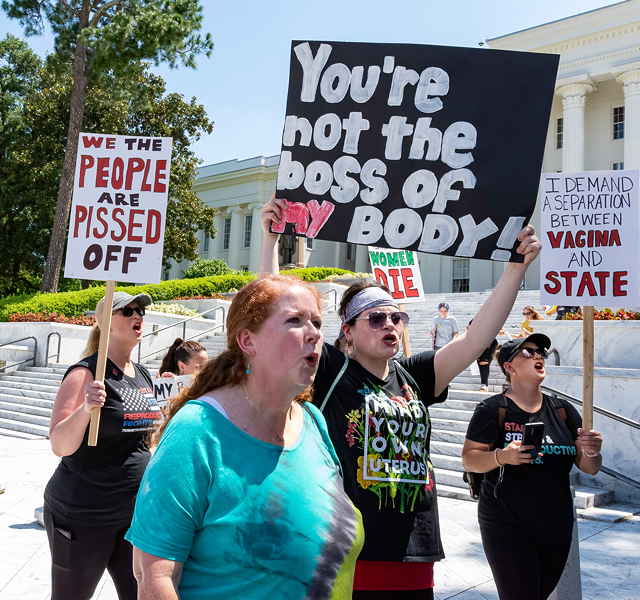
Disability Pride Month

LinkedIn Profile Goes Viral After Woman Lists Sex Work as Professional Experience

DSW Newsletter Archive
Oregon Sex Workers Committee’s Human Rights Commission
April 11, 2022
The Oregon Sex Workers Committee (OSWC) hosted its second Human Rights Commission Hearing. The hearing, held in Eugene, OR, brought together a diverse group of individuals including sex workers, allies, and members of law enforcement, who testified regarding the numerous and critical reasons to decriminalize consensual adult sex work.
Current and former sex workers described the devastating consequences that contact with the criminal justice system has had on their lives and their family members. Amber Batts, who turned to sex work to support herself and her children after escaping an abusive relationship, testified that after she was arrested her children were forced to live with their abusive father.
Because sex work is criminalized and misunderstood, consensual adult prostitution is often conflated with human trafficking in laws and policy reponses. Batts, from Alaska, was charged with trafficking, though Alaska’s vague law lacks the federal guidelines of force, fraud, or coercion, which define trafficking. The law, in essence, conflates human trafficking and consensual adult sex work. She testified that her bail conditions were more stringent than someone charged with murder. She was sentenced to five and a half years in prison for a “crime” in which no one was hurt. On the day of her sentencing, a woman who killed another individual was sentenced to three years.
Batts never intended to be public about her engagement in sex work, she was outed and malinged in the media following her arrest. Prior to her arrest and time in prison, Batts owned a home and was able to support herself and her children on her own. After her release, she was not able to obtain employment in the social services, for which her college education had prepared her, or in any field that would provide benefits or sufficient compensation. Sex work had allowed her to be independent.
J. Leigh Oshiro-Brantly, research and project manager at DSW, as well as a sex worker and long-time sex work activist, testified about the harms of the Entrapment/Nordic/End Demand/Equality model. They spoke powerfully about keeping moral and ideological frameworks out of decisions around public policy, and reminded viewers that decriminalization is the only legal framework governing sex work that gives agency to the worker.
The hearing also included an interview with a former high-ranking member of law enforcement in New Zealand. He discussed how and why the 2003 Prostitution Reform Act (PRA), which decriminalized sex work in New Zealand, led to an increase in public health and safety and a decrease in exploitation. Watch the informative and enlightening video here.
We encourage you to to watch the full Human Rights Commission Hearing here.
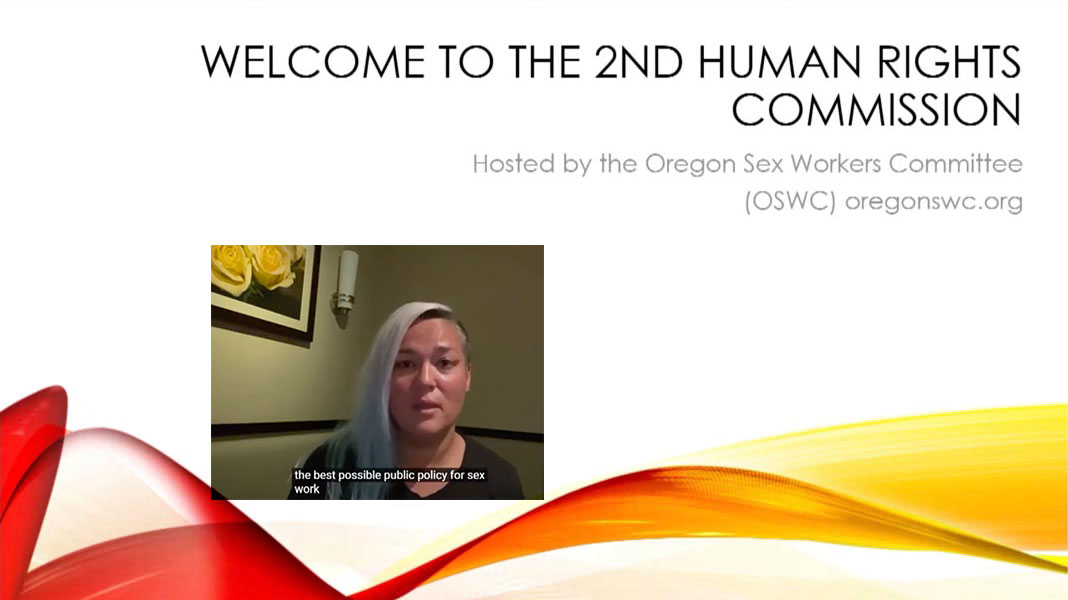
J. Leigh Oshiro-Brantly testifies during the commission hearing.
DSW Newsletter #35 (April 2022)
DSW Testified on Important Sex Work Bills in RI
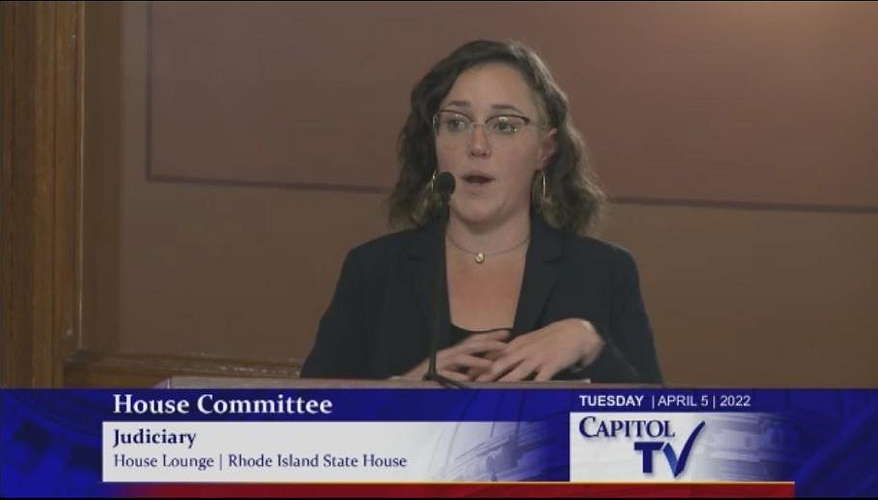
CO Quickly Advances the Safe Reporting Assaults Suffered by Sex Workers Act

DSW Report Finds Strong Racial and Gender Biases in Prostitution and Trafficking Enforcement

Oregon Sex Workers Committee’s Human Rights Commission

STI Awareness Month

Save the Dates

DSW Newsletter Archive
Sex Work Decriminalization Advances Toward Oregon Ballot | Willamette Week
I’m an Oregon Sex Worker—and the Idea of Gov. Nick Kristof Scares the Hell Out of Me | The Daily Beast
Petition launched in Oregon to decriminalize sex work | The Hill
Decriminalization Gaining Momentum in Oregon
November 16, 2021
Advocates in Oregon filed a petition on the Sex Worker Rights Act which would decriminalize consensual adult sex work with the Oregon Secretary of State’s Office. The petition will ideally allow voters in the 2022 election to show their support for human rights by decriminalizing sex work. The filing of the petition comes just a few weeks after the release of a report by the Oregon Sex Workers Committe (OSWC) demonstating the urgency of decriminalizing consensual adult prostitution in order to decrease exploitation and violence.
The 50-page report, titled “The Oregon Human Rights Commission Report on the State of Sex Worker Rights,” presents the findings from the Sex Workers Human Rights Commission’s public hearing on July 15, 2021, and collates data on arrests for prostitution and trafficking related charges in Oregon. It also includes findings from national and international studies on policies related to sex work and makes policy recommendations to improve public health, safety, and human rights for sex workers and communities at large.
Examples of some of the more under-reported and salient findings presented in the report include:
* At seventy-one percent, the vast majority of all prostitution and trafficking-related arrests in Oregon from 2005-2020 were for selling sexual services. This contradicts the rhetoric used by district attorneys in multiple counties who claim to be concentrating resources on the prosecution of trafficking rather than sex work.
* Comparing arrests by race, Black Oregonians are 15 times more likely to be arrested for promoting prostitution than white Oregonians.
* The punitive policing of sex workers alone has cost Oregon taxpayers an average of $21 million annually over the last 16 years. Beyond that, it has misdirected anti-trafficking funds towards the prosecution of consensual sex workers and their clients.
The decriminalization of consensual adult sex work would provide immediate relief to many of the most marginalized and vulnerable residents of Oregon. The criminalization of sex work has harmed public health outcomes, endangered sex workers, and made trafficking harder to detect.
“We compiled this report so Oregon lawmakers and voters would have the information they need to ensure the safety and wellbeing of sex workers and the community at large by decriminalizing sex work,” said Biance Beebe, a sex worker finishing her master’s of public health degree at the Bloomberg School of Public Health at Johns Hopkins University and co-chair of the OSWC.
OR House Bill 3088, which proposed the repeal of the state’s prostitution-related criminal laws, was introduced to the legislature in early February of 2021 by State Representative Rob Nosse. Fifty-four percent of polled Oregonians expressed support for the bill, but the House Judiciary Committee failed to consider moving forward with legislation.
“The movement to decriminalize sex work has gained incredible momentum around the country over the past few years and I believe that Oregon could be the first state to make this critical change,” said Elle Stanger, a sex worker, podcast host, and AASECT-certified sex educator who has been working and organizing in Portland for years, and also serves as co-chair of the OSWC.
The release of the report coincides with Nicholas Kristof's announcement that he will run for Governor of Oregon. Kristof, a long-time journalist at The New York Times, has spent his career perpetuating false and damaging myths about human trafficking and sex work, often conflating the two. He has stated that he supports the “Nordic model” also known as the “Entrapment Model” or “End-Demand Model” of governing sex work. Lawmakers market this legislation as a means of curtailing prostitution and combatting trafficking, while evidence shows it does neither. Countries that have implemented the entrapment model continue to see violence and exploitation perpetrated against sex workers.
“We knew this report was critical and timely even before Kristof announced his bid for Governor. Our lives and the lives of so many others are at stake. Evidence shows that decriminalization is the only way to reduce trafficking and increase public health and safety. We hope that voters and lawmakers will pay attention to the facts, listen to sex workers, and will not be swayed by the moral panic stoked by Kristof and so many others in their war on sex,” says a statement from the OSWC.
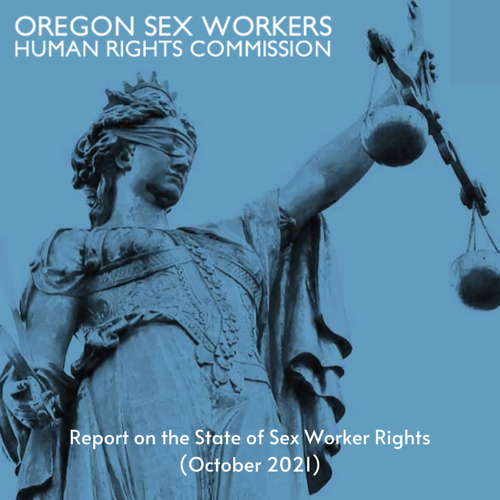
(DSW, 2021)
DSW Newsletter #30 (November 2021)
Gov. Hochul Signs START Act Into Law
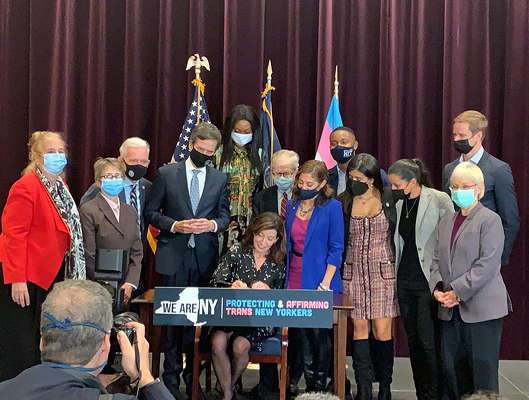
Commission Studying Sex Work Law and Policy Convenes in Rhode Island
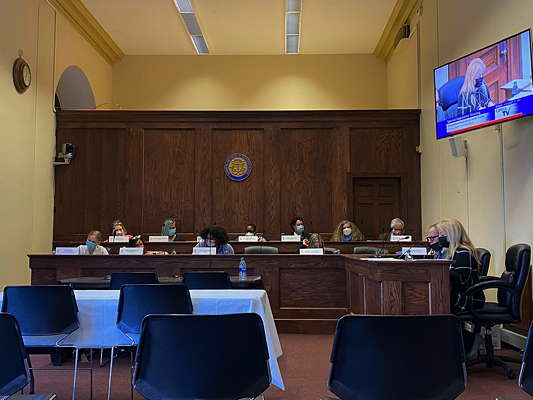
Decriminalization Gaining Momentum in Oregon

Conferences
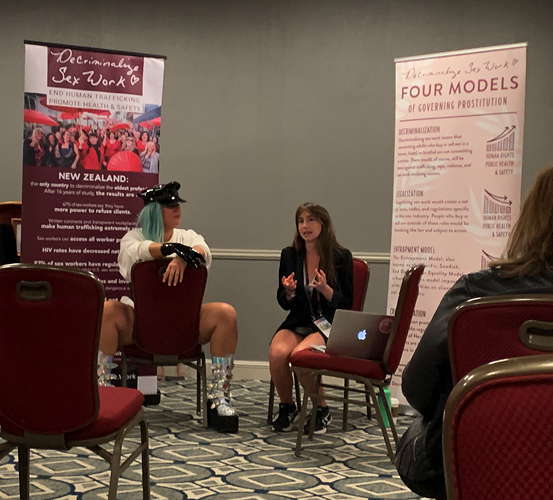
Transgender Day of Remembrance
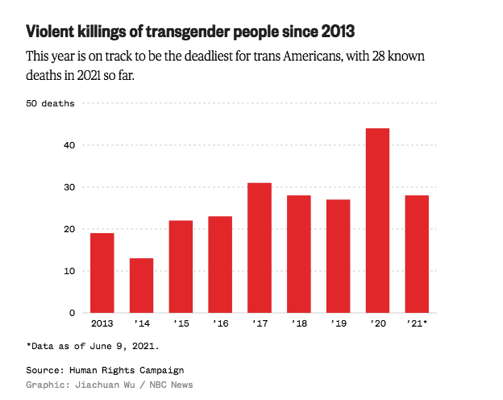
Hero of the Month: Gwendolyn Ann Smith

Save the Dates
